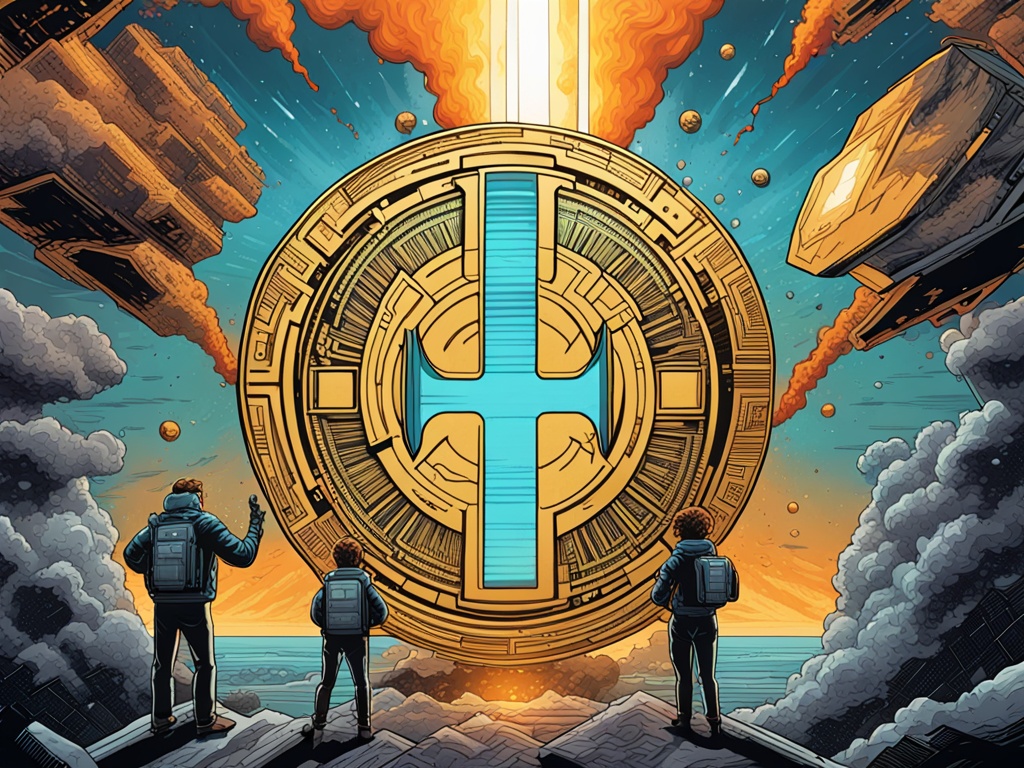What Happens When AI Meets Crypto: Is the Future Bright or Dangerous?
Imagine this: you’re chilling at a coffee shop, laptop open, researching the latest trends in Ethereum, when you stumble upon a blog post by none other than Vitalik Buterin, Ethereum’s co-founder. He’s laying out his vision for a world where superintelligent AI and decentralized technology go hand-in-hand, but not without some serious warnings. Sounds riveting, right? So, what does this mean for us as investors in the crypto market? Can we trust AI not to lead us into chaos? Let’s dive into this together.
Key Takeaways
- Balancing Technology and Safety: Vitalik Buterin stresses the need to balance rapid technological advancement with safety measures against potential threats from superintelligent AI.
- Decentralized Defense Options: He advocates for decentralized technologies like open-source solutions to help mitigate risks.
- Legal Responsibility & Regulation: Buterin proposes putting liability on users and considering a global soft pause for industrial AI to create a safer ecosystem.
- Cryptographic Solutions: Blockchain tools can help safeguard against misinformation and other risks that AI may pose.
So, Vitalik essentially paints this picture of urgency around AI—kind of like that feeling you get when your group of friends is trying to take a big leap off a cliff together, and you suddenly think, “Wait, is this really safe?” But his insights range from alarming to hopeful, showing us how we can harness the good of AI while sidelining potential disasters.
The Dance Between Progress and Caution
Buterin argues that we’re not just speeding toward innovation; we need to apply the brakes a little and embrace a balanced approach. He warns against a reckless arms race in AI technology reminiscent of how governments mishandled the early days of the COVID-19 pandemic with heavy-duty regulations leading to questionable outcomes. His call is clear: we need decentralized solutions that empower individuals, and that’s where crypto shines!
When I look back at my own journey in the crypto world, I remember when Ethereum was just starting to bubble up, and now it feels like we’re standing on the brink of something monumental. The shift from just financial transactions to a whole landscape of decentralized applications showcases how innovation can be both positive and advanced, if we tread carefully.
Rethinking Regulations and Liability
Now, here’s the kicker: Buterin suggests placing liability on the users of AI technologies. This means that if something goes sideways with AI, the folks using it should take the heat. On paper, this makes sense—accountability pushes everyone to be more responsible. But it raises concerns about who gets penalized if a poorly designed AI takes a wrong turn. It’s a bit like saying, “Hey, if your car malfunctions, you’re responsible for not checking it first!” Does that put too heavy a burden on individuals? It could end up being a double-edged sword.
Moreover, he proposes a somewhat audacious proposal of a global ‘soft pause’ on industrial-scale AI operations. Picture this: international bodies would need to sign off on advanced AI projects. It’s like getting a permission slip from your parents before you go out on a Saturday night! This could give us a much-needed breather to understand the consequences of our actions and ponder before we leap into the unknown.
The Power of Decentralization
Let’s be real, a lot of us got into crypto because we wanted to break free from traditional finance, right? Vitalik’s approach taps into that desire for independence and security in an uncertain world. Imagine decentralized technologies like open-source vaccines and community-driven defenses paving the way for a brighter, more secured future. It emphasizes empowerment rather than just waiting for governments or corporations to hand you safety, which is pretty awesome.
During this whole exploration of technology and safety, I can’t help but reflect on how personal and societal values can shape what we create. The crypto landscape has always been about community and collaboration, and aligning these values with the rapid advancements in AI could lead to some incredible innovations.
Funding the Future
Buterin also has some groundbreaking ideas on how to fund open-source projects and decentralized initiatives. He mentions “deep funding”—using AI to evaluate which projects are most deserving of support, allowing donors to see how initiatives build upon one another. It’s ingenious if you ask me! It can foster healthy competition and reduce biases that often come with funding decisions. This could mean more ground-breaking tech coming from the smaller players rather than just the big tech giants, which, let’s face it, tend to overshadow innovation at times.
Final Thoughts
At the end of the day, Buterin isn’t just throwing out a bunch of doom-and-gloom prophecies. He believes in working towards solutions where technology can be a force for good if carefully handled. It’s about creating an environment where we can adapt and evolve without stepping on each other’s toes. As someone who’s been riding the waves of cryptocurrency since those early days, I feel optimistic, yet cautious. The future is bright, but we have to navigate carefully through the potential pitfalls.
So let me ask you this: as we march toward this high-tech future, are we prepared to take on the responsibility that comes with it? Or will we, as a society, just swipe right and hope for the best?




 By
By
 By
By
 By
By
 By
By

 By
By